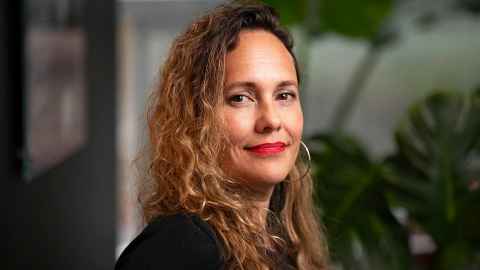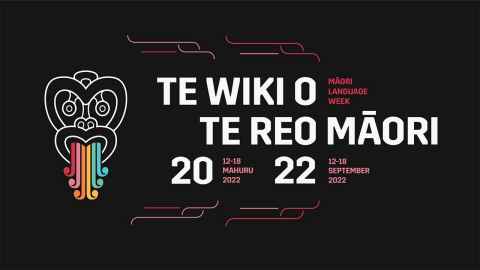Kiri Dell: thinking about te reo Māori
31 August 2022
Opinion: While it's a noble endeavour for people to learn te reo Māori, there are many complexities that arise from doing so, writes Dr Kiri Dell.

Whiua ki te ao
Whiua ki te rangi
Whiua ki ngā iwi katoa
Kaua rawatia e tukua e
Kia memeha e
These words are extracted from Whakarongo, a waiata-ā-ringa by Ngāti Porou composer Ngoi Pēwhairangi, advocating the usage, promotion and wide dispersal of te reo Māori.
Many Māori and Pākehā have decided to embark on a journey for Aotearoa New Zealand to become a te reo Māori-speaking nation. It’s a noble endeavour but I think we can agree that, although we have come so far, we still have so far to go. Perhaps it is timely for us to take a breath and consider some of the complexities arising with regards to how Māori and Pākehā can progress our nation’s aspirations.
I am an advocate for Pākehā to support Māori to be Māori. Not Māori supporting Pākehā to be Māori.
The distinction is important. When I voice this statement, people often get taken aback. To some it comes across as quite a separatist statement, but it’s actually the opposite. It represents the absolute, selfless support of Pākehā to Māori.
Let me explain. We can get a bit comfortable with espousing the idea that Aotearoa New Zealand is a bicultural society. It leads us, as citizens, to take for granted and assume that our two cultures exist as equal independents. The misconception risks masking the reality that, for the most part, Māori continue to live within the parameters of mainstream society.
To break this idea down further, we could think of New Zealand in three components. Pākehā society, Māori society and the meeting space in between. But a healthy meeting space requires both parties to be independently empowered.
I am an advocate for Pākehā to support Māori to be Māori. Not Māori supporting Pākehā to be Māori.
The promotion and consumption of te reo Māori provides an opportunity to highlight our partnership flaws and strengths. I like to use the metaphor of a hākari, the elaborate Māori feast, to prompt thought-provoking questions on te reo consumption but, more importantly, guide our behaviours and etiquette toward each other.
At this hākari, the culturally savvy and te reo experts have grown, prepared and laid out all of our best delicacies – including pāua, kōura, kina, tio, kutai. It’s all accompanied by waiata, guitars, witty company and the all-embracing manaakitanga that Māori will wrap you in.
But the hākari has limitations. The pool of experts is limited. There is only so much food they can prepare and hospitality they can give. The seats at the table are limited. Who should consume the food on that table first? Who should be nourished?
The statement, ‘I advocate for Pākehā to support Māori to be Māori ’, asks for Pākehā to keep opening up space for Māori, especially the disenfranchised, to take seats at the hākari table. The beauty of Pākehā who place themselves in a position of supporting Māori to be Māori, indirectly creates a bicultural relationship at much deeper and meaningful level with Māori. Why? Because it requires Pākehā to listen attentively and act responsively and to engage in a constant, genuine uncovering of Māori needs, realities and desires.
In other words, Pākehā intimately come to know the plight, dilemma and predicaments of Māori and, via those interactions, become immersed in the reality of te ao Māori.

Mainstreaming of te reo must not supersede or overtake Māori efforts to revitalise the language in their own communities, nor create a competing agenda at the expense of prioritising Māori needs.
Truly advocating for Māori is far more complex than the uptake of a te reo class. Te reo consumption is one part of our nation’s journey to become a Māori language-speaking nation.
With September being Māori Language Week (13-19 September) and the whole month focused on greater use of te reo Māori by all New Zealanders, it pays to remember this sobering fact: fewer than 20 percent of Māori can speak te reo confidently.
I am hoping to embark on a research project that includes shining a light on why it’s important to put Māori first if the nation is to make progress in strengthening te reo Māori.
While it’s admirable for Pākehā to learn Māori, let’s bear in mind that Pākehā privilege can be a psychological trigger for Māori who feel marginalised by revitalisation efforts. Some perceive Pākehā as having easier access to the experts who can teach them to speak and use te reo Māori.
But it is a Māori birth right to know te reo Māori for claims on land, authority to act on whānau, hapū and iwi issues, and for rights regarding marae politics. The language is a taonga that was taken away through colonisation.
This is not to criticise te reo Māori revitalisation efforts, but to acknowledge that there could be an impact on Māori well-being if there is inequitable access.
The challenge to revitalise straddles two dimensions. One acknowledges iwi Māori as kaitiaki. Its goal is for Māori to lead their own revitalisation efforts within their own communities.
The other promotes the mainstreaming of te reo Māori, which increases Pākehā consumption of, and appetite for, the language, using resources and expertise that could be used for Māori.
Mainstreaming of te reo must not supersede or overtake Māori efforts to revitalise the language in their own communities, nor create a competing agenda at the expense of prioritising Māori needs. Maintaining Māori well-being during the transition to a te reo Māori-speaking country is critical for this nation’s positive social transformation and smooth bicultural evolution.
Dr Kiri Dell is a senior lecturer in management and international business at Waipapa Taumata Rau Auckland Business School and director of the Postgraduate Diploma in Māori Business Development.
The views in this article reflect personal opinion and are not necessarily those of the University of Auckland.
This article first appeared in the September 2022 edition of UniNews.